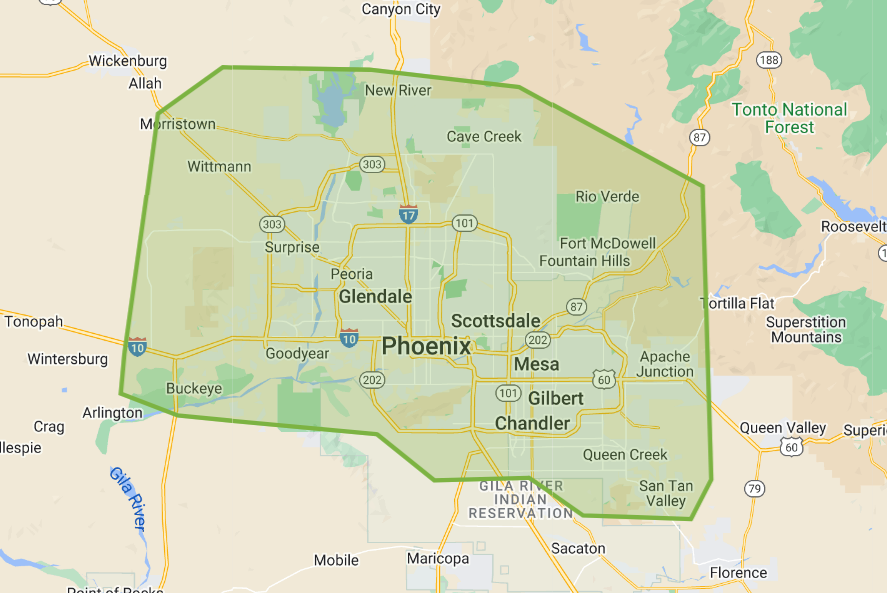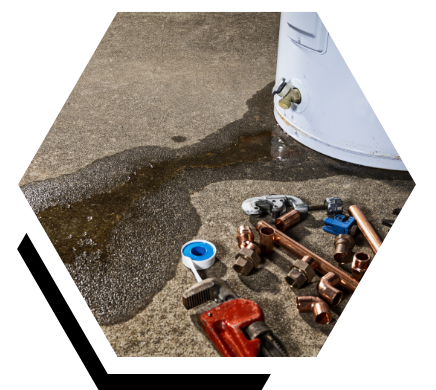When you’re experiencing water heater problems, Bumble Bee Home Services is the plumbing company to call for water heater repair in Tempe, AZ. Our plumbers specialize in all makes and models of both tank and tankless water heaters. We work on electric, gas, and solar systems and know how to restore them to like-new condition per manufacturer guidelines. If your water heater is too old or the repair is too expensive, we also offer water heater replacement. The newest models are impressively energy efficient and may make you eligible for credits, rebates, and other special offers.
Water Heater Repair and Replacement in Tempe, AZ
As top-rated plumbers in the Greater Phoenix Area, we place the utmost importance on our customer’s comfort and satisfaction. That means, when you call on Bumble Bee Home Services, you can always expect responsive service, top-notch repairs, and outstanding results!
Our water heater experts are specially trained to repair all water heater models and brands. So, if you need water heater repair for any tankless water heater, gas water heater, or hybrid system, Bumble Bee Home Services is the name to know.
Water Heater Inspection
Water Heater Replacement and Repair
A common issue we experience with water heater repair in Tempe is waiting too long to schedule. Many of the repairs we complete would’ve been much cheaper had the homeowner called us at the first signs of trouble. You also have to factor in the increased energy costs from decreased efficiency.
Flushing a water heater is perhaps the most common repair. Sediment and minerals build up over time, and you need to flush them out. It’s so prevalent that we recommend scheduling it as an annual preventative repair. Doing so will save you money and headaches down the line.
Another common repair is replacing the anode rod. An anode rod slows buildup by attracting sediment and corrosive elements. Replacing it as needed will extend the life of your tank. It’s also not uncommon to experience problems with your thermostat. A bad thermostat can increase energy costs, cause fluctuating temperatures, and lead to running out of hot water.
There are two factors to consider when deciding between repair and water heater replacement: system age and repair costs. If the system has passed the three-quarter mark of its life expectancy, we’ll generally recommend replacement. If the repair will cost more than half of an installation, we’ll typically advise replacement no matter the system’s age.
A tank water heater is the traditional choice for new water heater installation. A tank size of about 50 gallons is typical, but much smaller and larger tanks are available. Many homeowners are switching to tankless systems. They cost more upfront, but the upside is that they cost less over the life of the equipment and deliver a practically endless hot water supply.
The most efficient water heaters currently on the market are electric heat pump water heaters and fuel-burning condensing water heaters. You can choose between tank and tankless options.
- Low hot water pressure
- Increasing energy consumption
- Inconsistent water temperatures
- Unexpectedly running out of hot water
- Hot water with discoloration or unpleasant smells
Water Heater Repair in Tempe
Bumble Bee Home Services is a locally owned and operated family business serving Tempe and the surrounding communities. We employ seasoned, licensed plumbers who are passionate about their craft and customer service. We’ve earned BBB accreditation with an A+ rating. The BBB has even nominated us for a Torch Award for Ethics. On multiple occasions, we’ve also earned an Angi Super Service award and a Best of HomeAdvisor award.
Are you running out of hot water or experiencing other water heater troubles? Contact Bumble Bee Home Services today to schedule water heater repair in Tempe or with any further questions. We also service drain cleaning, kitchen and bathroom plumbing, and more.

Areas of Service
©2025 Bumble Bee Home Services. All Rights Reserved.
License: ROC: #277858 ROC: #277859 Arizona Registrar of Contractors ROC License Number ROC 357153.
Privacy Policy.
This site is protected by reCAPTCHA and the Google Privacy Policy and Terms of Service apply.
Web Design and Internet Marketing by RYNO Strategic Solutions




